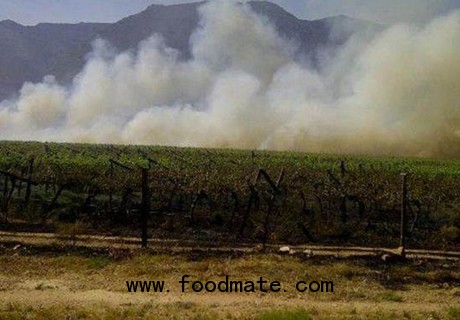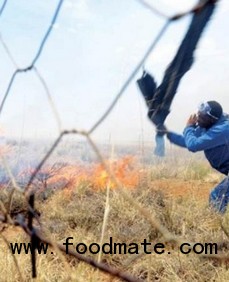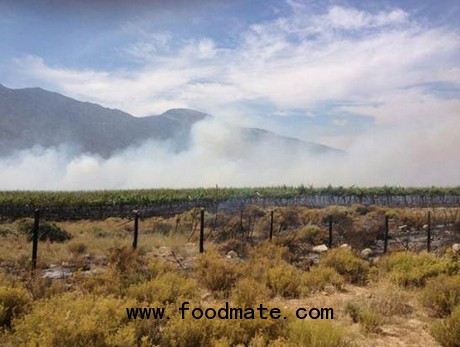Fifty hectares (123 acres) planted with grapes were incinerated near De Doorns, about 140 kilometers (87 miles) northeast of Cape Town. Farmers are still assessing how much land was burned. De Doorns, which has 4,800 hectares of vineyards, is the largest producer of table grapes. South Africa is the continent’s biggest grower of the fruit.

“They are looting shops and whatever they can find - it’s a disaster,” Adams said. “We earlier had helicopters to try and extinguish the fire. The Commission for Conciliation, Mediation and Arbitration is trying to mediate between the workers and the farmers.”

The protesters want better wages and living conditions, the Congress of South African Trade Unions, the nation’s biggest labor federation, said in an e-mailed statement. Labor unrest has rocked the mining and manufacturing industries in South Africa, where a quarter of the workforce is unemployed and almost a third of the population of 51.8 million receives welfare grants.
“We believe this to be politically motivated action, and not a labor protest,” Western Cape Agriculture Minister Gerrit van Rensburg said in the statement. “It is at this stage very difficult to identify the leadership of the protest, and therefore impossible to engage in dialog with the protesters.”
The strike started on 30 October when farm labourers stopped work and delivered a memorandum to the Western Cape government demanding higher wages, they said. But they claim the government only paid attention when the vineyards started to burn.

A fragile peace has since descended in the region as the Commission for Conciliation, Mediation and Arbitration arbitrates between strikers and their employers.
The Western Cape is controlled by the Democratic Alliance, making it the only one of South Africa’s nine provinces not governed by the ruling African National Congress.

Estimated Damage
Reports say as much as 25 million rand ($2 million) of table grapes were destroyed. Investigations into the extent of the damage are still pending.







